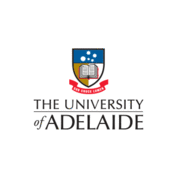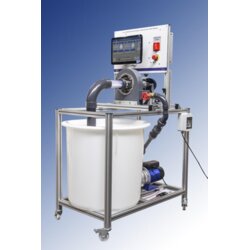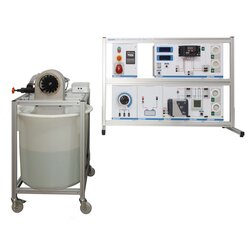Hydropower Training Project for Solomon Islands
In this project Edquip worked with Dikoin and University of Adelaide to implement two Hydropower Training Sytems at the Solomon Islands National University in order to provide hands-on learning experiences for local workforce development.
The project was executed with funding from the Australian Department of Foreign Affairs & Trade.
There are currently various development projects in Solomon Islands focusing on Hydropower generation, such as Tina Hydro, and this makes the focus of add-on workforce development projects for this sector extra timely.
Read further below on the Challenge, the Solution, and the expected Impact resulting from these training solutions.
Scroll to the bottom to see which products were used.
Challenge
Skills gaps for improving Sustainability & Energy Independence
The Solomon Islands faces significant challenges in energy generation due to its geographical makeup and limited infrastructure. As a dispersed archipelago of over 900 islands (147 inhabited), the country struggles with the high cost and complexity of providing consistent and affordable electricity across remote regions. The national energy mix remains heavily reliant on imported diesel, resulting in volatile pricing, supply vulnerability, and substantial environmental impact. However, the Solomon Islands is rich in untapped renewable energy resources, particularly hydropower. Its mountainous terrain and abundant rainfall create ideal conditions for small- and medium-scale hydroelectric projects, offering a clean, reliable, and locally sourced alternative to fossil fuels.
Despite the suitability of hydropower, the country faces major gaps in technical capacity to implement and maintain such systems. There is a shortage of engineers and technicians trained specifically in hydropower generation, operation, and maintenance. Without a skilled local workforce, projects risk becoming unsustainable, as they rely heavily on external consultants or risk prolonged downtimes. Educational institutions like the Solomon Islands National University (SINU) are eager to address this gap but have limited access to hands-on training resources. Bridging this skills gap is essential for enabling a transition to renewable energy and for ensuring long-term energy security for the Solomon Islands.
Solution
Hands-on Learning with Hydropower Training Equipment
To address the skills gap in hydroelectric power generation, practical and technically relevant training tools are essential. Two advanced training systems were delivered to SINU: a Hydroelectric Plant with Pelton Turbine and an Autonomous Electric Brake Kaplan Turbine. These systems are specifically designed to give students and trainees hands-on experience with the two primary types of turbines used in small- to medium-scale hydroelectric plants.
The Pelton turbine trainer simulates high-head, low-flow water conditions, allowing students to explore hydraulic principles, turbine performance optimization, and electrical power output measurement. The system is equipped with digital instrumentation and safety systems, giving learners exposure to real-world scenarios in a controlled environment.
The Kaplan turbine system, on the other hand, is designed for low-head, high-flow water conditions and features an autonomous braking system to replicate grid-connected operation. Students gain practical experience with turbine regulation, flow control, and energy conversion under variable loads. This system complements the Pelton trainer by covering a different operational profile, equipping learners with the breadth of knowledge required in diverse field conditions.
Together, these tools offer a robust platform for understanding the entire hydropower generation process—from fluid mechanics and turbine selection to electrical conversion and control systems. By integrating these systems into its curriculum, SINU is now equipped to provide industry-relevant, technical training that prepares students for real-world deployment and maintenance of hydroelectric infrastructure in the Pacific region.
Results
Expected Impact of local Skills Development
The introduction of hands-on hydropower training tools at the Solomon Islands National University represents a transformative step in building local capacity for sustainable energy development. With access to these high-fidelity simulators, students can now engage in experiential learning that mirrors real-world operational environments. This significantly enhances their understanding of hydroelectric systems and prepares them for employment in engineering, maintenance, and energy management roles.
The long-term impact extends beyond the classroom. As more technicians and engineers are trained locally, the Solomon Islands will be better positioned to develop and maintain decentralized renewable energy systems across its islands. This reduces dependence on foreign expertise, lowers the cost of operation, and improves energy reliability—especially in remote communities where infrastructure investment is limited.
Furthermore, this investment contributes to broader national goals, including energy security, climate resilience, and economic empowerment. A well-trained workforce can drive the adoption of clean energy technologies, stimulate job creation, and reduce carbon emissions. For SINU, the equipment also opens up new opportunities for academic-industry collaboration, research, and regional leadership in renewable energy education.
Further, University of Adeliade and SINU are deepening their relationship for the long-term. Dr. Cristian Birzer comments that they are aiming to have students from University of Adeliade travel to SINU to take local intensive courses, both out in the field and in the laboratory with the newly installed equipment.
The two institutions are working closely with Pelena Energy (a company specilized in smaller rural hydroelectric projects in the Solomon Islands) to fundrise for further development projects in the Pacific Islands, we are excited to see what more is to come!
Ultimately, these training tools are not just educational devices—they are catalysts for change, equipping the next generation of professionals with the skills needed to power a sustainable future for the Solomon Islands and beyond.

Producer quote




